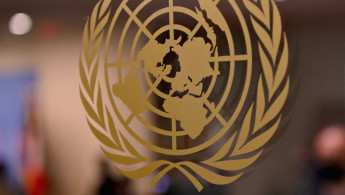UN to drill US officials about racial discrimination record
A UN watchdog is due Thursday to begin drilling US officials about the country's record in battling racial discrimination, amid mounting calls for reparations after centuries of systemic racism.
The United Nations Committee on the Elimination of Racial Discrimination (CERD) will host hearings in Geneva with top US officials, advocates and NGOs about whether Washington is upholding its international obligations to fight racial discrimination.
The hearings, set to start Thursday afternoon and continue Friday, will address a raft of issues, including police killings of black people and unequal access to education, housing and to a healthy environment.
The committee includes 18 independent experts who evaluate how countries are adhering to an international convention on eliminating all forms of racial discrimination, which the United States ratified in 1994.
Ahead of the first regular review of the US record since 2014, rights advocates insisted the US government had never adequately addressed violations against black people during slavery and subsequent periods marked by exploitation, segregation and violence.
That legacy, they argue, continues to be seen in economic, health, education, law enforcement, housing and other policies and practices.
The focus for civil society during the session will be "on the question of acknowledgement, repair and reparations," Vince Warren, executive director of the Centre for Constitutional Rights, told AFP.
Washington is sending a 23-member delegation to argue the country's case and respond to questions from committee members, who will issue their findings on August 30.
President Joe Biden's administration said in a statement it was "deeply committed to addressing the challenges of systemic racism both at home and abroad".
Washington has held four rounds of consultations with US civil society in preparation for the review, including one in Geneva on Wednesday.
"We welcome and want to encourage participation by civil society in this process," said a spokesperson for the US mission in Geneva.
A number of the advocates who have travelled to Geneva agreed that the current administration had gone further than its predecessors in acknowledging problems linked to structural racism.
But they say few concrete actions have followed.
"The Biden administration has shown it can name the problem, but the time has come to take bolder action," Jamil Dakwar, head of the American Civil Liberties Union's human rights programme, said.





 Follow the Middle East's top stories in English at The New Arab on Google News
Follow the Middle East's top stories in English at The New Arab on Google News
![The UAE is widely suspected of arming the RSF militia [Getty]](/sites/default/files/styles/image_330x185/public/2024-11/GettyImages-472529908.jpg?h=69f2b9d0&itok=Yauw3YTG)
![Netanyahu furiously denounced the ICC [Getty]](/sites/default/files/styles/image_330x185/public/2024-11/GettyImages-2169352575.jpg?h=199d8c1f&itok=-vRiruf5)
![Both Hamas and the Palestinian Authority welcomed the ICC arrest warrants [Getty]](/sites/default/files/styles/image_330x185/public/2024-11/GettyImages-2178351173.jpg?h=199d8c1f&itok=TV858iVg)